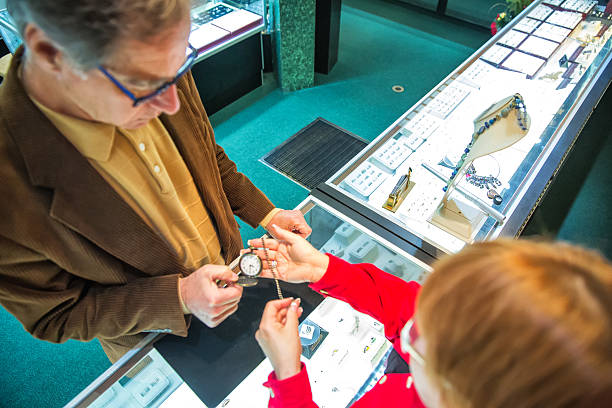Choosing the right medical molding company is a critical decision that can significantly impact the success of your healthcare manufacturing project. The quality, precision, and reliability of medical components depend on the expertise and reputation of the molding company you select. In this article, we will guide you through the essential steps to find a reputable medical molding company that meets your specific needs.
1. Define Your Project Requirements:
Before embarking on your search for a medical molding company, clearly define your project requirements. Understand the scope of your project, including the type of medical components needed, production volume, material specifications, and any regulatory standards that must be met. Having a comprehensive understanding of your project will guide your selection process.
2. Look for Industry Experience:
Reputable medical molding companies typically have extensive experience in the healthcare manufacturing sector. Look for companies with a proven track record of successfully delivering high-quality medical components. Consider the number of years the company has been in business, the range of projects they have undertaken, and whether they specialize in the specific type of molding your project requires.
3. Assess Certifications and Regulatory Compliance:
Regulatory compliance is paramount in the medical industry. Ensure that the medical molding company holds relevant certifications and complies with industry standards and regulations. Common certifications include ISO 13485 for quality management in medical devices and ISO 9001 for general quality management. Verify that the company’s manufacturing processes align with the necessary regulatory requirements for medical components.
4. Review Customer Testimonials and References:
A reputable medical molding company will have positive testimonials and references from satisfied clients. Look for reviews on their website, industry forums, or third-party review platforms. Reach out to the company directly and request references from previous clients who have undertaken similar projects. Hearing about the experiences of others can provide valuable insights into the company’s reliability and customer satisfaction.
5. Evaluate Technological Capabilities:
The medical molding industry is continually evolving, with advancements in technology influencing the manufacturing process. Assess the technological capabilities of the molding company, including the types of molding machines used, their level of automation, and any innovative technologies they employ. A company that invests in cutting-edge technology is more likely to deliver precise and high-quality medical components.
6. In-House Design and Engineering Expertise:
A reputable medical molding company often has in-house design and engineering teams. The ability to collaborate closely with design and engineering professionals streamlines the development process, ensuring that the mold design is optimized for efficiency and precision. In-house expertise also allows for quick problem-solving and modifications during the project.
7. Scalability and Production Capacity:
Consider the scalability and production capacity of the medical molding company. Whether your project involves small batches or large-scale production, ensure that the company can meet your specific volume requirements. Scalability is essential for accommodating future growth and ensuring a consistent supply of medical components as needed.
8. Transparency in Communication:
Effective communication is a key factor in the success of any manufacturing project. Choose a medical molding company that values transparent communication. They should provide clear and timely updates on the progress of your project, respond promptly to inquiries, and address any concerns or issues that may arise during the manufacturing process.
9. Facility Tour and Quality Control Measures:
If possible, arrange a visit to the facility of the medical molding company. A tour allows you to assess their manufacturing environment, equipment, and overall operational standards. Inquire about their quality control measures, testing protocols, and adherence to industry standards. A company committed to quality will have robust processes in place to ensure the reliability and precision of the final products.
10. Request for Prototyping and Samples:
Before committing to a large-scale production run, request prototyping and samples from the medical molding company. This allows you to assess the quality of their work, evaluate the accuracy of the components, and ensure that the final products meet your specifications. Reputable companies are typically willing to provide samples to demonstrate their capabilities.
11. Consider Geographic Proximity:
While not a determining factor, geographic proximity can be a consideration when choosing a medical molding company. Working with a company located nearby may facilitate easier communication, reduce shipping costs, and provide the opportunity for on-site visits. However, prioritize expertise and reputation over proximity if the right company is located farther away.
12. Obtain Multiple Quotes:
Finally, obtain quotes from multiple reputable medical molding companies. Compare the quotes in terms of pricing, lead times, and the overall value offered. Keep in mind that the lowest price may not always equate to the best value. Consider all factors, including experience, certifications, and technological capabilities, when making your final decision.
Conclusion:
Finding a reputable medical molding company is a crucial step in ensuring the success of your healthcare manufacturing project. By following these steps and conducting thorough research, you can identify a company with the expertise, reliability, and quality standards necessary for producing precision medical components.
Remember that the right medical molding partner goes beyond being a supplier – they become a collaborative partner in your project’s success. Take the time to choose a company that aligns with your project requirements, values, and commitment to delivering high-quality medical components for the healthcare industry.
